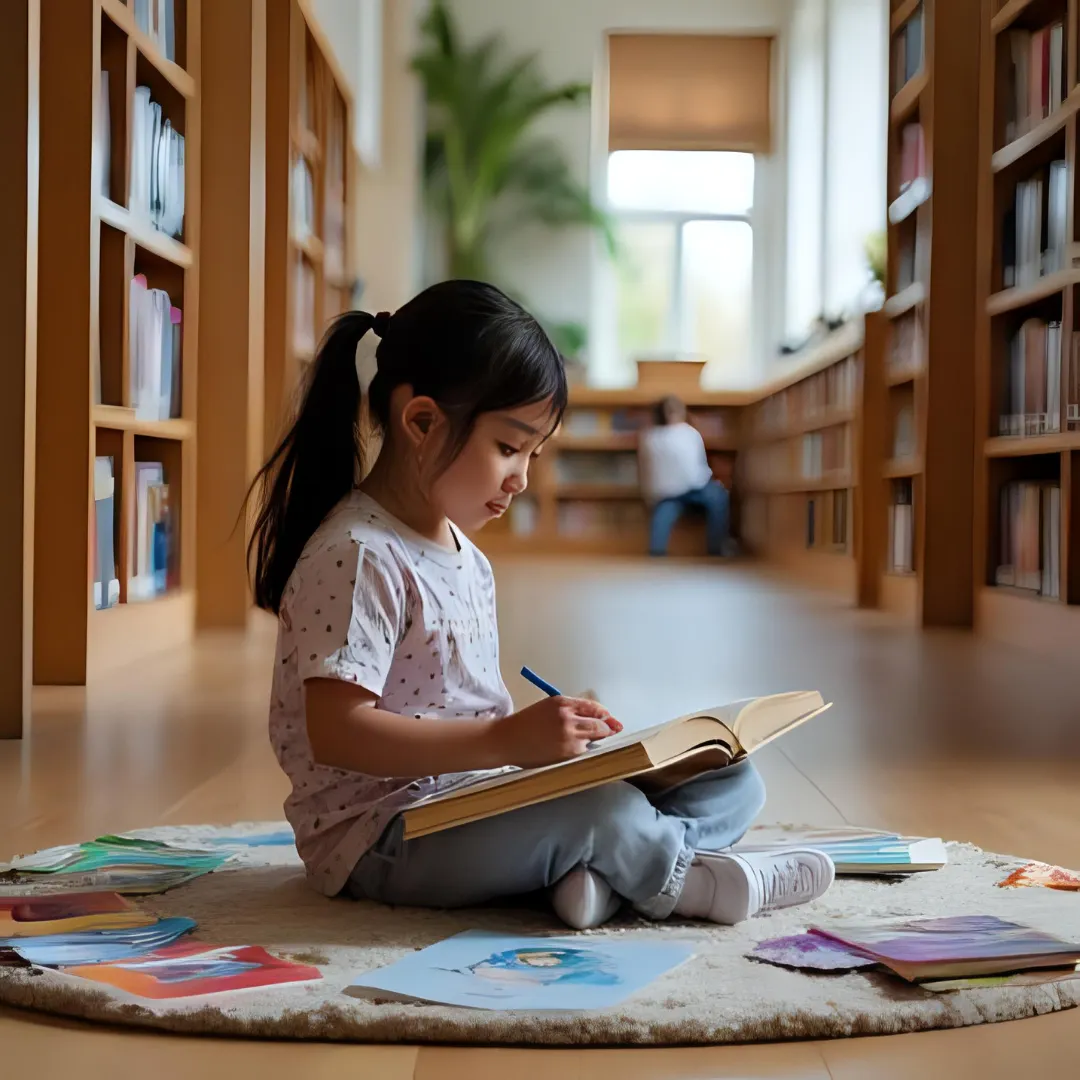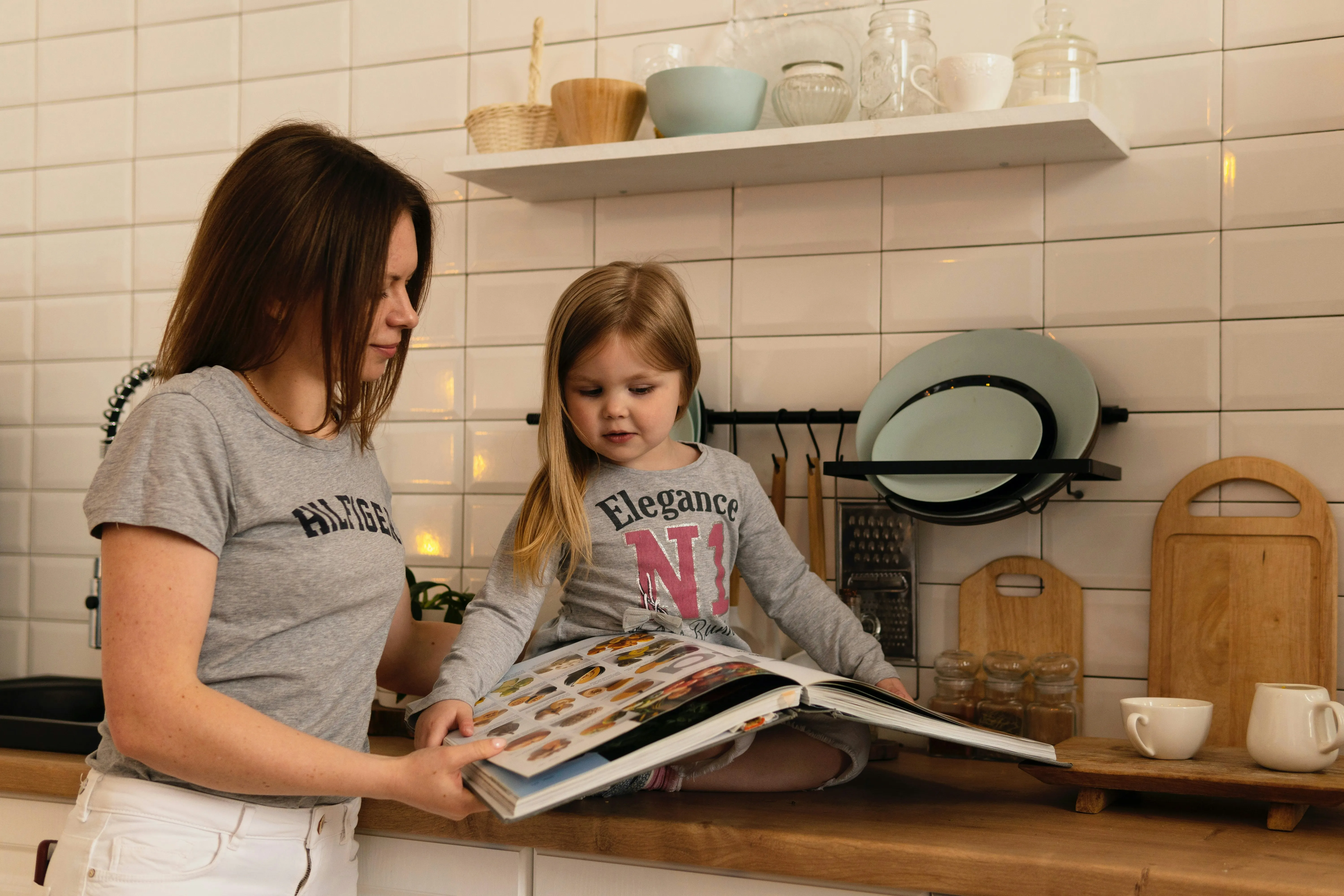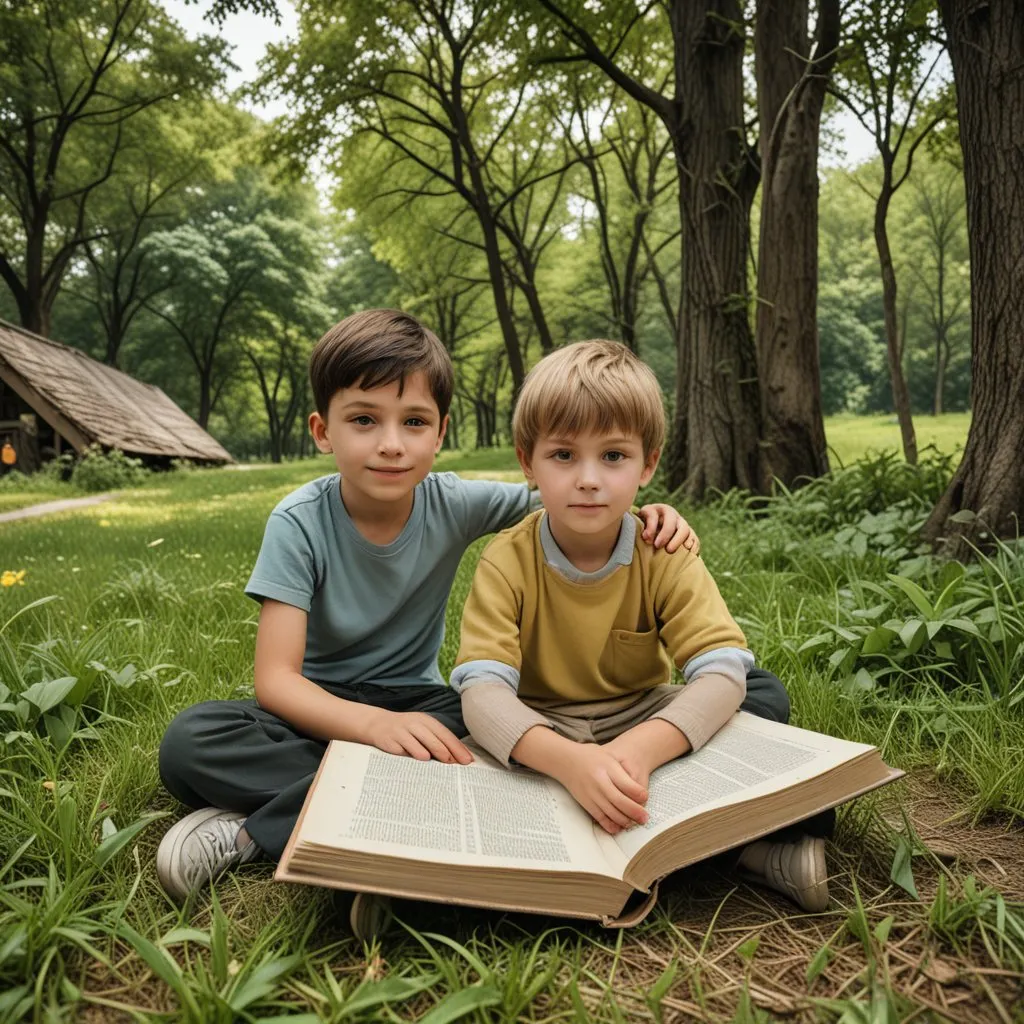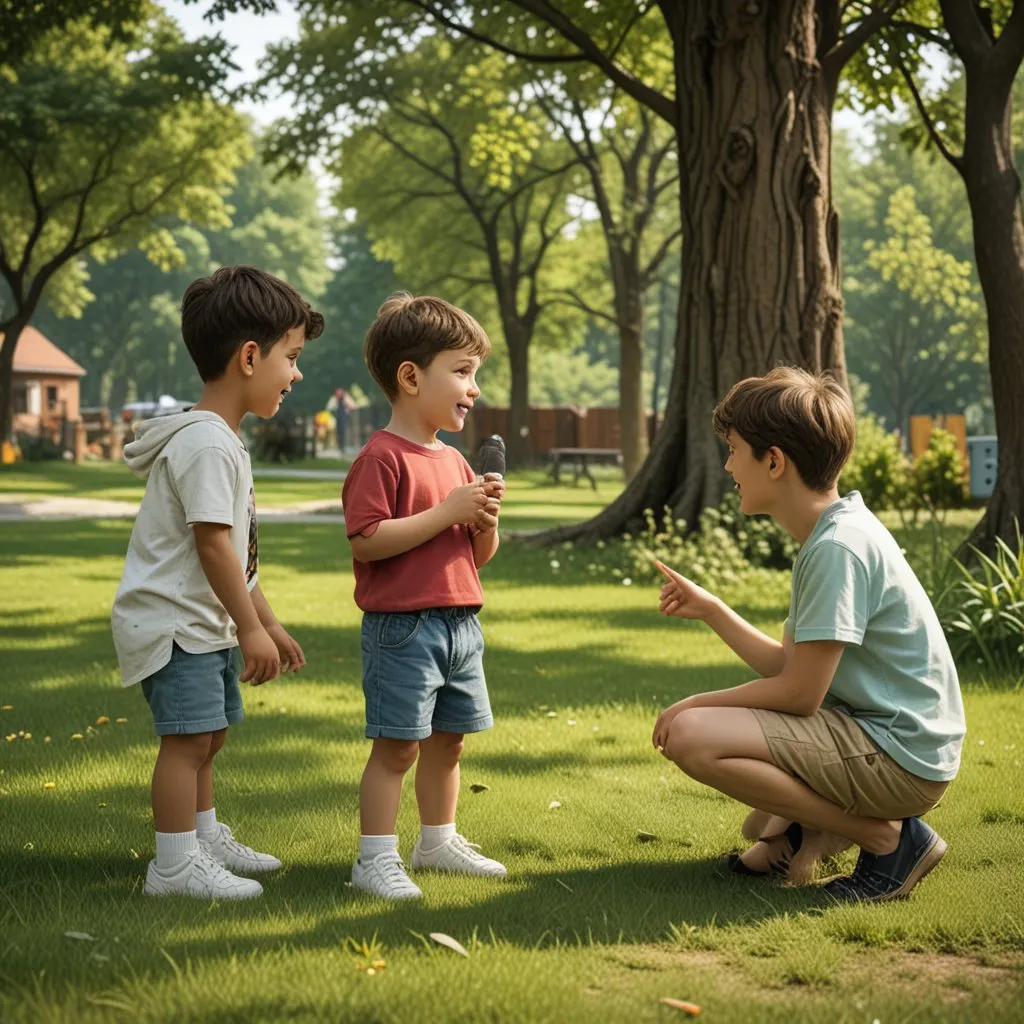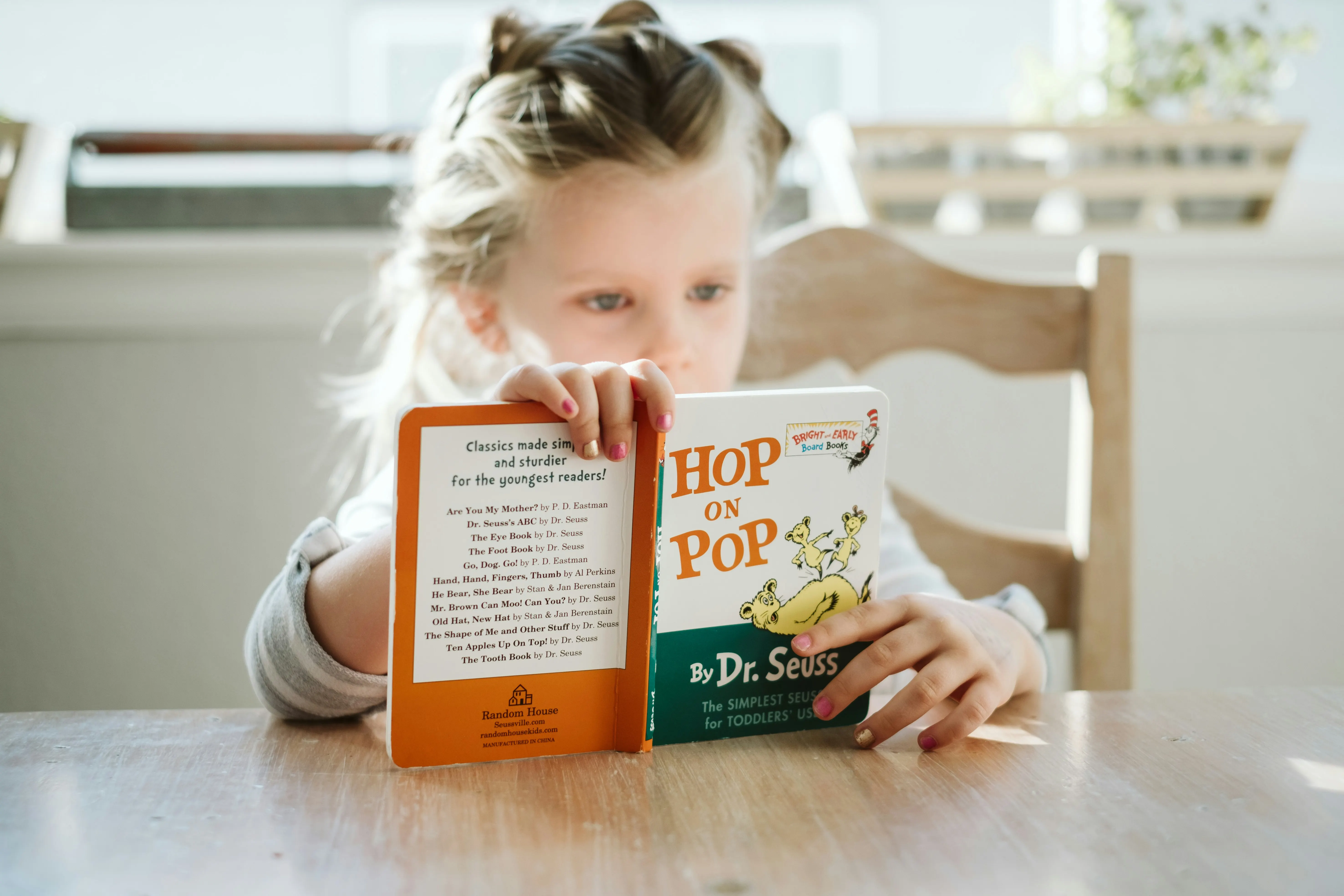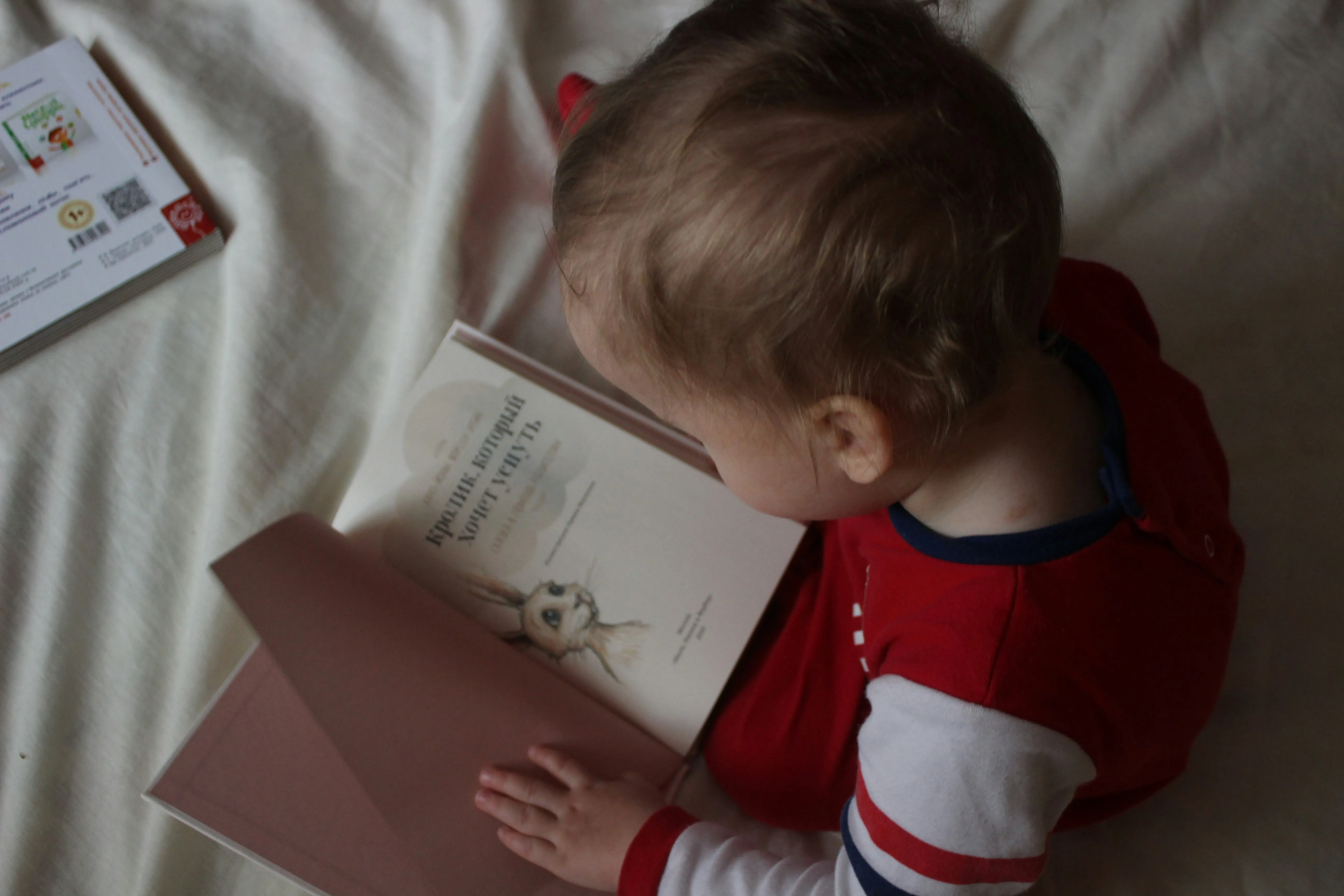Speak in Sentences Day: Fun Phrases for Kids to Use
Celebrate Speak in Sentences Day with These Kid-Friendly Phrases

Key Highlights
- Speak in Sentences Day celebrates communication skills by introducing fun phrases for kids.
- Different sections provide simple sentences for various scenarios like mornings, school, home, play settings, and daily challenges.
- Kids learn essential English phrases for greetings, basic grammar, fluency, and vocabulary improvement.
- Interactive games and storytelling activities make language learning enjoyable and effective.
- Practical advice for parents, including methods to encourage full sentences and improve conversational confidence.
- FAQs address critical concerns, such as understanding sentence structures and finding fun ways to learn English naturally.
Introduction
Developing confident English communication starts with everyday phrases and simple sentences. Speak in Sentences Day teaches greetings, grammar rules, and fluency exercises to help kids learn easily. Speaking in full sentences builds confidence and makes communication smoother in daily life. For kids, using practical phrases helps them ask questions, show feelings, and creatively share their thoughts. By practicing sentences every day, they can quickly improve their English skills naturally. Are you ready to build your vocabulary and confidence in speaking? Let’s get started!
Essential Daily Phrases for Kids
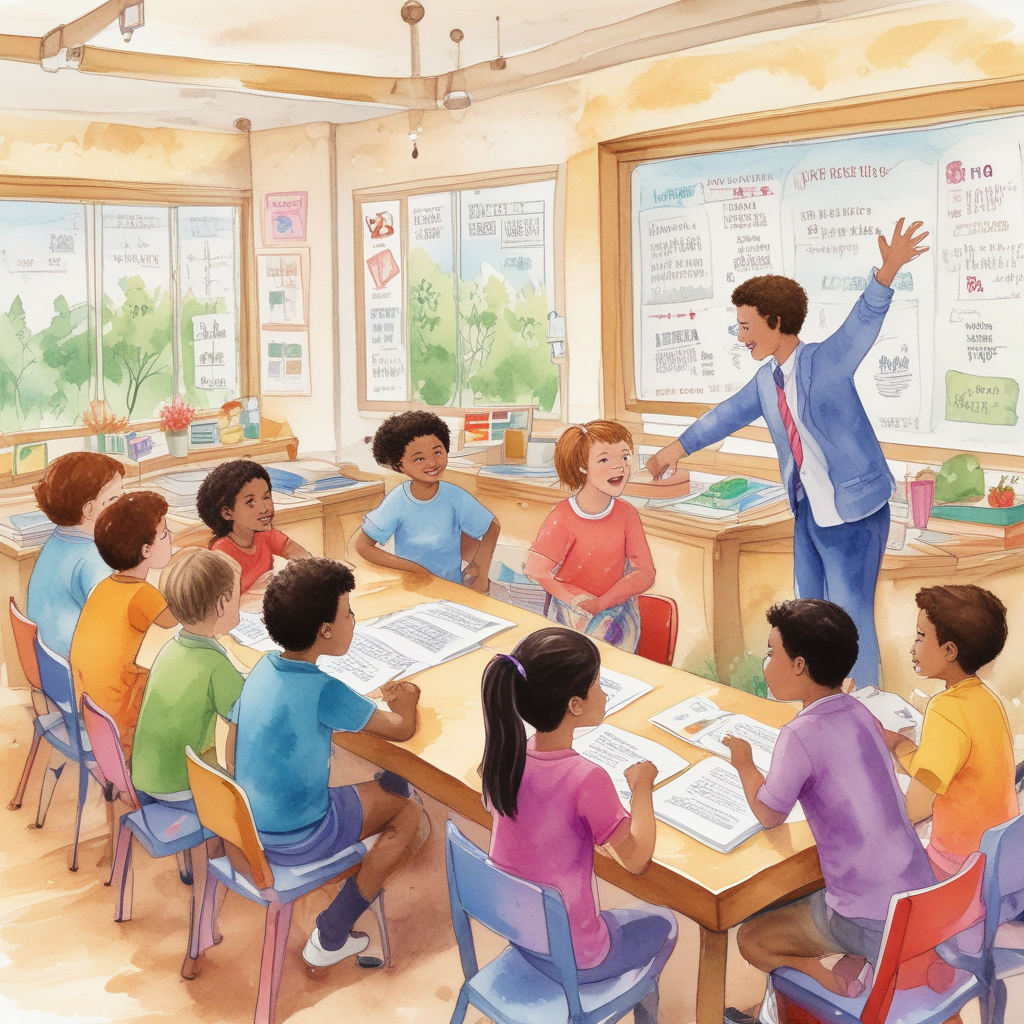 Every day, sentences help us communicate well. You should start with simple phrases that kids can use at home, in school, or while playing. Phrases like “Good morning! How are you?” teach greetings and help kids learn how to form sentences correctly. Other examples include good afternoon wishes, talking about their favorite color, or asking for help.
Every day, sentences help us communicate well. You should start with simple phrases that kids can use at home, in school, or while playing. Phrases like “Good morning! How are you?” teach greetings and help kids learn how to form sentences correctly. Other examples include good afternoon wishes, talking about their favorite color, or asking for help.
Using friendly phrases like “Let’s play!” or “Can I have ice cream?” makes it easier for children to speak in everyday situations. These small, meaningful phrases help improve fluency and build confidence as kids practice them over time.
Morning Routines: Simple Sentences to Start the Day
Each morning gives a new chance to practice communication. Start by helping kids say, “Good morning! I feel great today.” This short sentence shows how to greet someone and share feelings. Children gain from saying things like, “Wake up. Let’s get ready for school.”
When they are ready, ask them to practice basic sentences during breakfast. For example, saying, “Can I drink water, please?” or “Let’s have pancakes!” teaches them good grammar. These phrases help them learn better sentence structures.
Talking about their plans also makes mornings fun. Questions like, “What’s the great thing we’ll do today?” or “Shall we play after school?” help them share their thoughts. By using morning phrases daily, kids will be better at communicating all day.
School Time Talk: Engaging with Teachers and Classmates
School is a great place to improve communication skills. Start using simple sentences in class, like “May I go to the restroom?” or “I have a question about this topic.” These phrases help kids connect with everyday communication.
During lunch breaks or group activities, kids can use fun questions to make small talk with classmates. Questions such as “What’s your favorite color?” or “Do you like soccer?” give them a chance to practice. The first time trying these questions helps them become fluent and make friends.
Interacting in class also teaches kids how to communicate respectfully. Using phrases like “Excuse me, can you explain that again?” or “Can I help with the project?” shows good grammar and polite speaking. Building these habits gets kids ready for effective conversations, both at school and outside of it.
Communicating at Home
 Home is the best place for kids to try new phrases. During mealtime, you can teach them phrases like, “Good afternoon, can you pass the salt?” This helps them learn polite conversation. Answering questions like, “What’s your favorite thing today?” gives chances for deeper chats.
Home is the best place for kids to try new phrases. During mealtime, you can teach them phrases like, “Good afternoon, can you pass the salt?” This helps them learn polite conversation. Answering questions like, “What’s your favorite thing today?” gives chances for deeper chats.
Kids can also speak up in casual situations by saying things like, “Can I have water, please?” or “Let’s clean the room together!” These phrases help build their communication skills. They will feel more confident when talking to family and guests.
Family Mealtime Conversations: Phrases Kids Can Use
Mealtime brings families together. It is a great way to practice speaking. You can start with greetings like “Good afternoon!” or “Hope you had a great day!” These polite words help create meaningful conversations.
Simple phrases such as “Can you pass the salad, please?” or “ The soup is delicious!” allow kids to share their thoughts and requests confidently. Talking about new topics, such as favorite color or hobbies, with sentences like “Mine is blue, what’s yours?” encourages a variety of dialogues.
We can use team-based sentences like “Let’s set the table together” to build cooperation and effective communication skills. This family time helps with conversational fluency and strengthens relationships. When we encourage daily discussions, kids can improve their vocabulary while enjoying good moments with family.
Expressing Needs and Wants Clearly
Teaching kids to express their needs is important for smooth communication in different situations. For example, phrases like “Can I have ice cream, please?” or “May I watch TV for an hour?” show how to make clear requests. Children also learn basic grammar while asking questions.
Offering help in new situations builds their confidence in speaking. They can say, “Can I offer help with preparing the dinner table?” or “Do you need help carrying books?” Using their natural tone helps improve their fluency and interaction skills.
When facing challenges, clear speech is necessary. If they are lost, children can ask, “Where can I find grandma?” Learning specific phrases for certain situations helps them make respectful and accurate requests.
Interaction in Play Settings
Playing gives children a chance to talk and connect with others. Using friendly phrases like “Let’s play soccer. Do you know the game rules?” helps them make friends. Asking questions while playing improves both small talk and good communication.
When kids share toys, it works well when they say things like “Can I play with your train set?” Using complete sentences helps them build relationships and work together. These ways of talking get children ready for joining bigger groups of friends.
Making Friends: Phrases for Introductions and Play
Friendship starts with simple phrases. Encourage kids to say, “Hi! What’s your name?” when they meet. Then, they can follow up with small talk like, “I love playing games. Soccer is my favourite!” These easy English sentences help them connect with native speakers easily.
To make playtime better, set up situations where kids can try different dialogue options.
For example:
- “Can you teach me how to play this game?”
- “Shall we try a new toy next time?”
- “What’s your favorite outdoor activity?”
- “Mine is tag!”
These fun exchanges make them excited about talking and playing together. By using different introduction phrases every day, they can build fluency in English.
Sharing and Cooperating: Key Phrases for Harmonious Play
Encouraging play is also about teaching kids to work together. They can practice simple sentences like, “Let’s share these crayons!” or “Shall we take turns with the car?” These common sentences help build trust and keep things smooth while they play.
When children argue, guiding them on how to communicate can boost their confidence. Teach them to say, “Can we figure this out together?” or suggest a compromise: “What if we play my game first and then yours?” Using everyday English phrases for cooperation helps kids understand each other better.
Also, talking about playtime can create more meaningful moments. Encourage them to say, “I had fun playing with you; thank you!” or “Let’s plan something fun for tomorrow.” Teaching them to use clear sharing sentences can lead to better social relationships.
Building Vocabulary Through Fun Activities
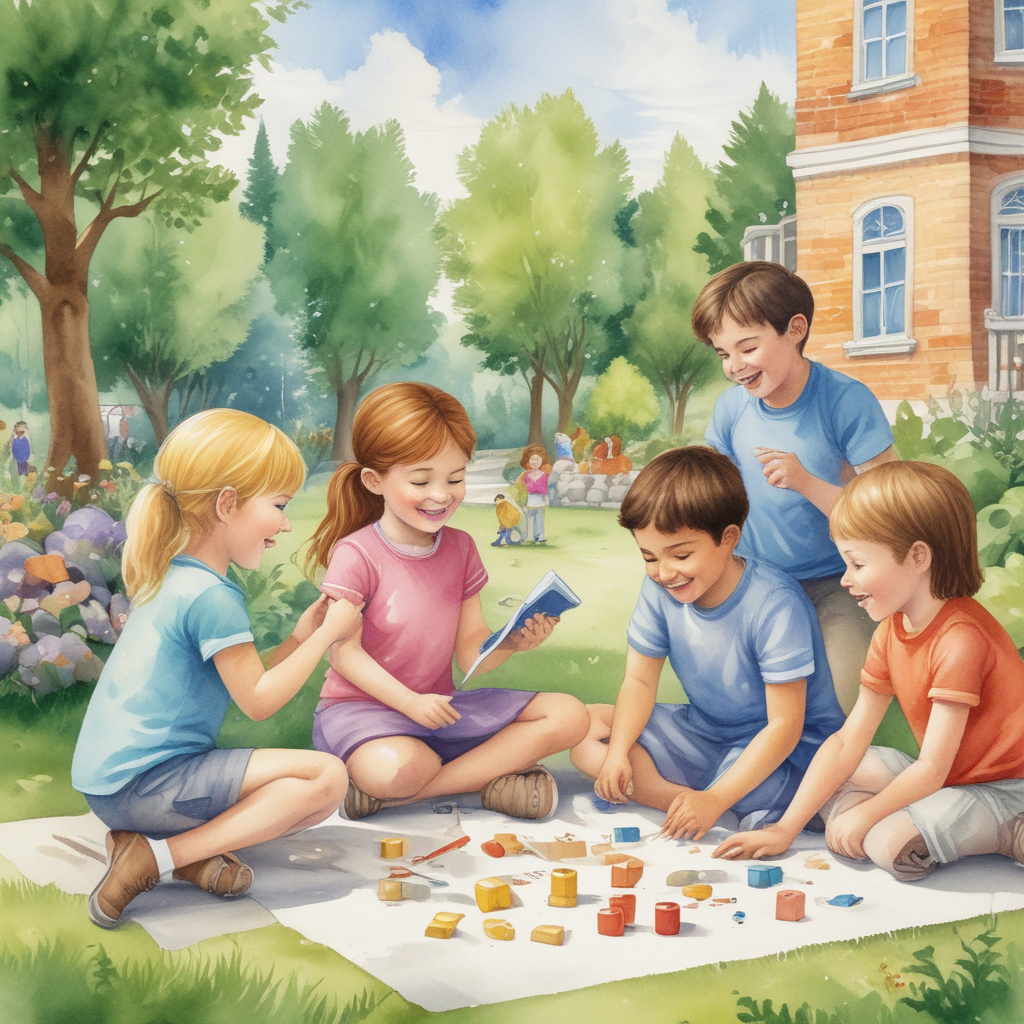 Learning vocabulary should be fun. Get kids involved with creative activities where they use daily English sentences in interactive ways. Special games allow children to practice new words and gain confidence in grammar.
Learning vocabulary should be fun. Get kids involved with creative activities where they use daily English sentences in interactive ways. Special games allow children to practice new words and gain confidence in grammar.
Encourage them to tell stories and use helpful phrases like, “Next time, I’ll start my story differently.” Linking emotional words to colorful sentences helps them grow their language skills naturally. Remember to include games made for everyday situations.
Games that Enhance Language Skills
Interactive games make learning vocabulary more exciting. Wordplay games help students learn new language skills in a fun way. For example, you can create a scavenger hunt with common items found at home. Kids can practice sentences like "May I borrow your map?" while searching.
Scenario-based games help improve real-life conversations. Set up role plays, like booking a bus ticket, where they can ask, "Could I purchase tickets for the afternoon trip?" These fun sentences help make their fluency better.
Kids like to review the rules through team games. They might ask, "Shall we first learn the directions together for better results?" Activities like these build strong vocabulary while keeping everyone engaged.
Creative Storytelling with New Phrases
Storytelling is a great way to help kids have meaningful conversations. Begin by encouraging them to use daily English sentences in fun stories.
Encourage them to change common phrases in creative ways. They can explore ideas like “Shall we create drama next time?” throughout their stories. When they practice storytelling, it helps them learn grammar while having fun!
Practical Phrases for Everyday Challenges
Challenges give children great chances to learn good ways to communicate. Using complete sentences helps them share their ideas. For instance, polite requests like “Can I help solve this problem?” show kindness when working together.
Practicing sentence structures in everyday situations helps them handle their daily lives with confidence. Whether they need something or need to fix a problem, these skills improve teamwork, understanding feelings, and being flexible.
Handling Disagreements: Phrases that Help Solve Conflicts
Disagreements happen; teaching calm communication can help solve these situations. For example, you could say, “Can we talk about this together?” or “I think we need to find a solution.” Using clear sentences can help everyone think logically during conversations.
Building empathy makes it easier to problem-solve with phrases like, “How about we try one option first?” Asking questions can also make everyone's expectations clearer and more peaceful.
Closing respectful conversations ends conflicts nicely. Using sentences like, “Let’s resolve this calmly, then we can play again” helps build emotional strength. Doing this every day can improve critical thinking and teach compromise skills.
Asking for Help: What to Say in Different Situations
Expressing requests can bring great results when you use the right phrases for each situation. For example, when kids say, “What’s grandma doing today?” it creates a caring way to start a conversation.
Being confident helps when you speak clearly. You can use phrases like, “Can I lend you my map, or do you need something else?” These statements fit well based on what people have in common.
Lastly, fixing confusion with sentences like, “Shall explanations improve understanding?” helps to create good friendships. Practicing these simple ideas step by step helps make great habits that work well in life!
Related Articles :
World Book Day for Kids: Sparking a Love for Reading
Nurturing Bonds Through Mother's Day Reading
From Words to Wisdom: How Early Literacy Shapes Success Across Life's Journey
Conclusion
In conclusion, helping children communicate well using simple daily phrases is very important for their confidence and social skills. When you use these key sentences in different places—like morning routines, school activities, family meals, or playtime—it can help kids naturally build their vocabulary and speaking abilities.
Encouraging them to share their needs and work together with friends not only supports their language skills but also teaches them important life lessons. By using these simple phrases, parents can create a supportive space that helps their child feel confident and communicate better. To help your child grow in this area, try fun activities that promote their language skills and allow them to practice these phrases.
Frequently Asked Questions
What are some simple phrases to encourage polite behavior?
Using phrases like "Please," "Thank you," and "Excuse me" is a good way to be polite. It is helpful to encourage kids to say, "Can I help you?" or "Would you like to play?" These sayings help build kindness and respect when they talk to others.
How can these phrases improve my child’s confidence in speaking?
Practicing these phrases helps to improve communication skills. It makes it easier to be clear and fluent in different situations. When kids face language challenges, they learn to talk more clearly. This practice creates positive experiences that help their speech develop naturally over time.
Are there any fun games to help kids remember these phrases?
Scavenger hunts are fun activities that combine memory skills and group interaction. They bring people together, create relaxing moments, and boost energy. These events help strengthen communication and celebrate excitement. By experimenting with elements of the hunt, participants engage in enjoyable experiences.
Through playful activities, people gain recognition and share laughter. The outcomes of these hunts are a result of careful planning and teamwork. Each activity builds trust and is structured to provide lasting memories. The experiences are not only meaningful but also designed to bring joy and connection.
Goals are created for learners to explore new interests while having a good time. In this way, scavenger hunts become a platform for creativity and bonding, leading to future interests and hobbies.
What are some simple sentence structures that kids can practice for Speak in Sentences Day?
Kids can practice easy sentence structures like subject-verb-object sentences (for example, "The cat sleeps"), questions (like "Can I play?"), and descriptive phrases (such as "The big dog barks"). These basic patterns help boost their speaking skills. They encourage creativity and confidence on Speak in Sentences Day.
How can parents encourage their children to use complete sentences during conversations?
Parents can help kids use full sentences by speaking, asking open-ended questions, and having fun conversations. They should praise their attempts and gently encourage them to express their ideas further. This caring atmosphere supports communication skills and makes talking enjoyable for both parents and kids.
What are some fun activities or games to help kids learn to speak in sentences?
Fun activities such as storytelling, sentence-building games with flashcards, and playful role-playing can boost children's skills in forming sentences. Including songs and rhymes makes learning fun, too. It helps kids practice sentence structure easily.
How can using full sentences improve a child's communication skills and confidence?
Using full sentences helps kids share their thoughts clearly. This improves their communication skills. When they express themselves well, it boosts their confidence and helps cut down on misunderstandings. As time goes by, kids get more comfortable talking. This leads to better social interactions and stronger relationships.
Reference
https://www.teaching-revolution.com/start
https://simplienglish.com/blog/daily-use-basic-english-sentences-and-phrases-for-kids/
https://www.scribbr.com/category/verbs/
https://news.google.com/publications/CAAqBwgKMOqd0gswqbnpAw

Written with Augmented Intelligence and SHiNER The Human










